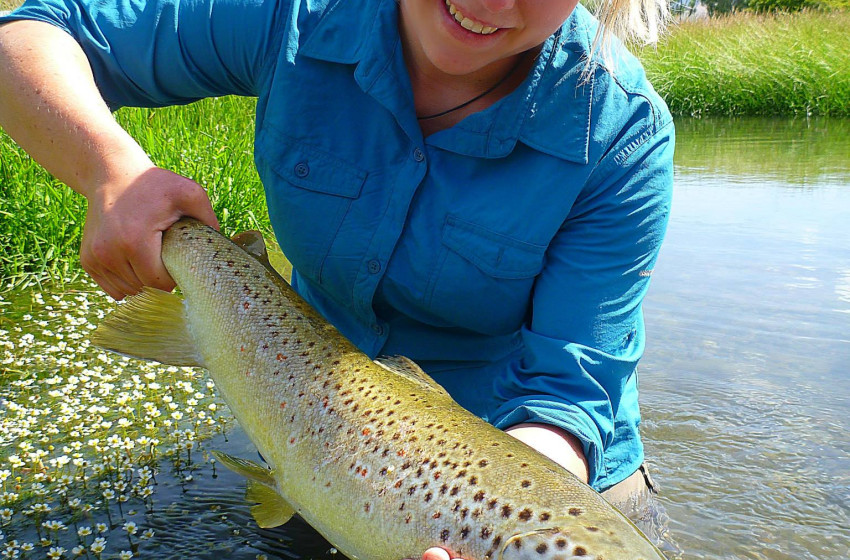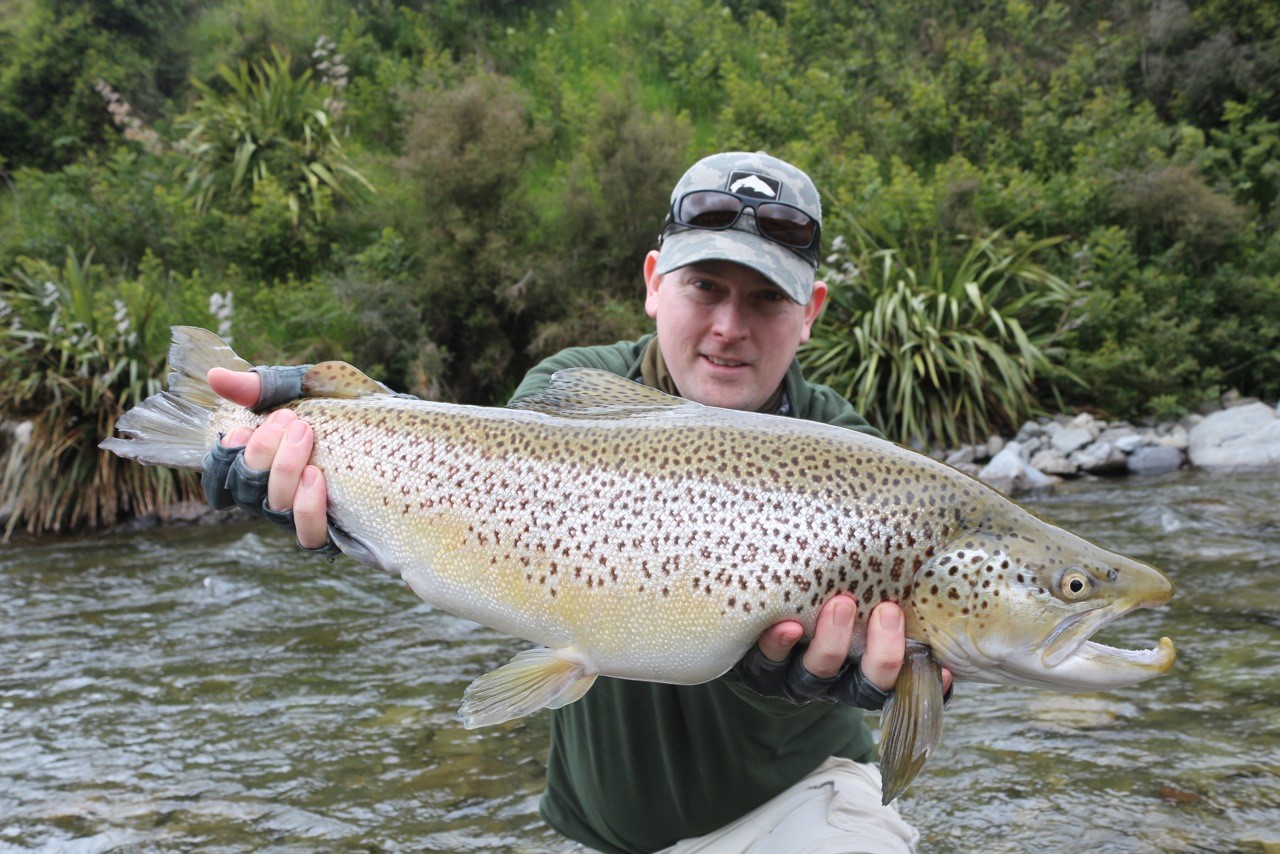150th anniversary of brown trout in New Zealand
- 10/10/2017

Today marks the 150th anniversary of the introduction of brown trout, a species which has become culturally, environmentally and economically important to New Zealand over that time.
Visiting German fly fisher Christine Brueker with a great West Coast brown trout.
Brown trout are native to Europe and were first introduced into New Zealand in 1867 from British stock which had been established in Tasmania only three years earlier.
Fish & Game New Zealand’s Chief Executive Bryce Johnson says once the trout were in Tasmania, New Zealand seized the opportunity.
“With a finhold now established in the southern hemisphere, brown trout were bred in Tasmania and their eggs were brought to New Zealand by the Canterbury Acclimatisation Society,” Bryce Johnson says.
But the survival rate was low, with only three trout hatching from the 1200 eggs which had been shipped from Tasmania.
New research by historian Jack Kos shows the first trout to hatch in New Zealand was a brown in Christchurch’s Hagley Park on October 10, 1867.
Jack Kos, who has just finished his PhD on the introduction of brown trout, says the lone fish was followed a few days later by a further two.
“So, by mid-October 1867, New Zealand had brown trout – only three of them but trout nonetheless,” Jack Kos says.
Fish & Game says from that small beginning, brown trout have become widely established in both the North and South Islands.
In the process, they have become a culturally valuable New Zealand species and one that has been a catalyst for protecting the environment, water quality and some of the country’s most outstanding wild rivers, lakes and streams.
“Trout are important because they act as an umbrella species, safeguarding the environment because they are critical indicators of high water quality,” Bryce Johnson says.
“They are the canary in the mine – if water quality is deteriorating to the point that trout can’t survive, then native species, which have a higher tolerance for poorer water quality, will also become more threatened.
“As a result, 12 of the country’s 15 Water Conservation Orders have been secured because of the high quality of their trout fisheries,” Mr Johnson says.
Brown trout have also provided the foundation for a multi-million dollar tourism industry.
“New Zealand’s brown trout fishery here is rated as one of the best on the planet, attracting anglers from all over the world,” Bryce Johnson says.
Chris Baker with a hefty 11 pounder caught on a dry fly (Photo Martin Langlands).
“Some of these are high-spending international travellers who are happy to pay significant sums of money to pursue trout. This cash provides a valuable boost to regional economies through not only fishing guides but also food, travel and accommodation,” he says.
Trout fishing is also popular with New Zealand anglers, with more than a hundred thousand licences sold every year.
“Trout anglers come from right across society – on a river, everyone is equal. Skill, love of the outdoors and love of fishing are what brings them together, not money or privilege,” says Bryce Johnson.
The impact of trout angling isn’t confined to recreation – it has also provided the basis of a dedicated manufacturing industry.
“New Zealand makes very good fishing rods, outdoor clothing and boats, along with other fishing equipment such as trout flies, all of which provide jobs and a boost to the national economy,” Bryce Johnson says.
“All this flowed from the hatching of a single brown trout in Hagley Park 150 years ago today.”
To learn more, click here.